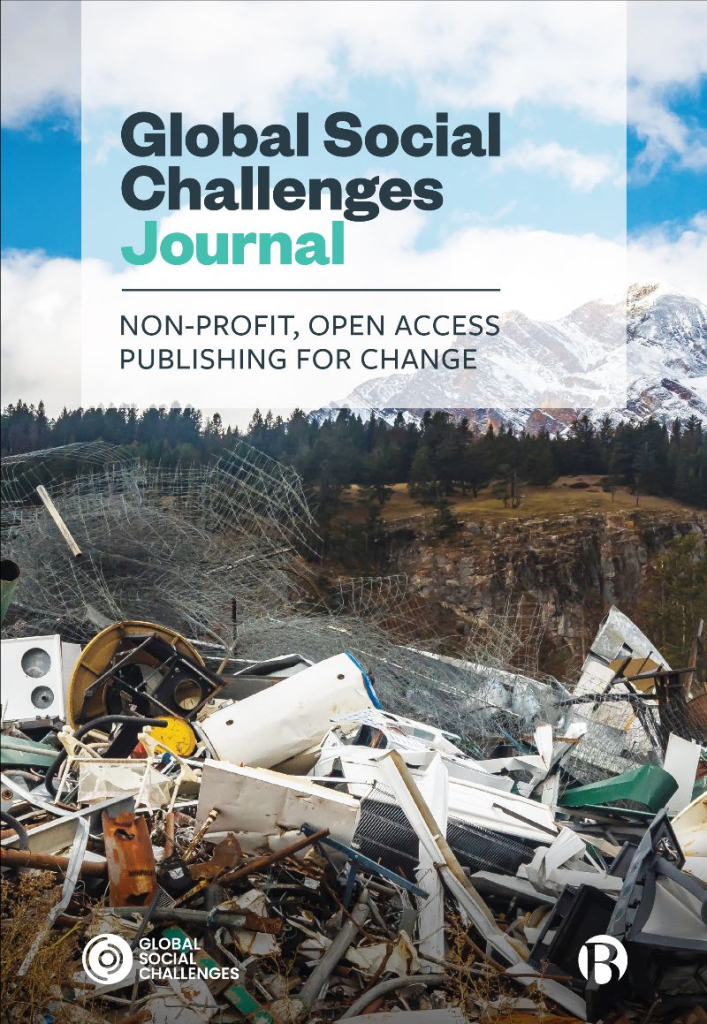Earlier this month, Bristol University Press proudly became the first publisher to sign the Africa Charter for Transformative Research Collaborations.
Co-created by Africa’s key higher education and science constituencies, the Charter’s core concern is to advance a fundamental rebalancing of the global research and science ecosystem. The aim of the Charter is to ensure that African scholars, institutions and knowledge take their rightful place in the worldwide scientific effort. The Charter articulates 12 principles for how research collaborations need to be transformed, and six key aspirations for change in policy and regulatory frameworks – among HE institutions and networks, funders, research assessment bodies, governments, international science bodies and publishers.
The terrain of knowledge production has long been deeply skewed in favour of the Global North. The Global North dominates the research ecosystem, with Global South actors often relegated to data gatherers, or missed out entirely. Yet in order to arrive at equitable solutions to the global social challenges of, among many others, climate change, hunger, ethnic and gender justice, it is imperative that all voices are represented in the research exploring those challenges. How can we tackle the complexities of climate change, for example, if much of the world’s population is excluded from the conversation? At the recent launch of the Chrysalis Youth Fund, we heard that 87 per cent of young people under 30 live in the Global South – yet research on youth is dominated by Global North actors.
Bristol University Press, through its books and journals, and particularly the Open Access Global Social Challenges Journal, has long been committed to this process of transformation; in its aims and scope, the Global Social Challenges Journal signals its engagement with decolonial and southern epistemologies, and three of the journal’s six editors-in-chief are based in the Global South, while two more come from there: Brazil, India, China, Zimbabwe and South Africa. Last month, we published a provocation entitled Beyond ‘equitable partnerships’: The imperative of transformative research collaborations with Africa, in which Isabella Aboderin, Divine Fuh, Eyob Balcha Gebremariam and Puleng Segalo, some of the architects of the Charter, explore the multiple layers of power imbalances in scientific knowledge production. They highlight the need both for transformative research collaborations with the continent, and for the reversing of the research ‘gaze’, where African investigations and interpretations of global challenges might take their rightful place. The paper has been viewed and downloaded over 1,000 times in the first two weeks of publication.
The Global Social Challenges Journal has already published several articles on equity in Global North–South research partnerships, and two papers exploring African perspectives on food system transformation from Africa. Our most viewed, downloaded and highly cited publication to date, More than a metaphor: ‘climate colonialism’ in perspective, by Gurminder K. Bhambra and Peter Newell, discusses how colonial histories drove climate change, and shows how any effective response to climate change must reckon with the colonial histories that have produced it.
But we are fully aware of how much further there is to travel, and the Press’s signature of the Charter is simply an expression of our commitment to playing our part in transforming global social challenge research.
Our commitments include:
- The Global Social Challenges Journal will commission key African scholars to write papers reframing each of our 16 listed themes, including climate change and the future of work, from an African perspective.
- Aware of the inherent inequalities of a Gold Open Access model where the researcher pays to publish, the Global Social Challenges Journal is currently waiving all publishing charges, and is seeking funding to publish the journal under a Diamond model, thus providing a funded infrastructure for its diverse community of authors, editors and readers. Unfunded authors from the Global South will always be able to publish their research free of charge.
- The Global Social Challenges Journal’s EDI working group continues to identify and put into practice the actions that can be taken to promote equity, including partnerships and local language translations.
- Across our journal portfolio, we will continue the work of aligning our publishing policies and guidelines to adhere to the key principles for transformative research collaboration. All our journals have recently signed up to an Equity, Diversity and Inclusion Statement. We encourage all our editorial teams to commit to diversifying their journals’ author bases and governance; many of our journals have moved to word counts exclusive of references, to encourage diversity in citation and referencing practices. We actively encourage submissions using collaborative research models, e.g. participatory action research.
- We encourage our journals to reflect decolonial and southern epistemologies, both through the content of the research that they publish, and through how it is reported, embracing non-verbal and other alternative formats.
As we all embark on a collective endeavour to acknowledge past injustices and reimagine a fairer society, we are glad to be working with colleagues across the global research infrastructure, through our active participation in the Charter, to redress at least some of the imbalances that currently characterise both publishing and global science.
 Read the fully Open Access Global Social Challenges Journal on Bristol University Press Digital.
Read the fully Open Access Global Social Challenges Journal on Bristol University Press Digital.
Follow Transforming Society so we can let you know when new articles publish.
The views and opinions expressed on this blog site are solely those of the original blog post authors and other contributors. These views and opinions do not necessarily represent those of the Bristol University Press and/or any/all contributors to this site.
Image credit: Sergey Pesterev on Unsplash


